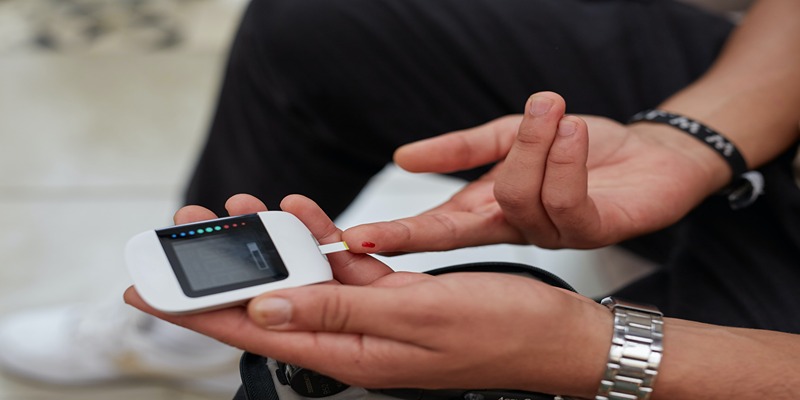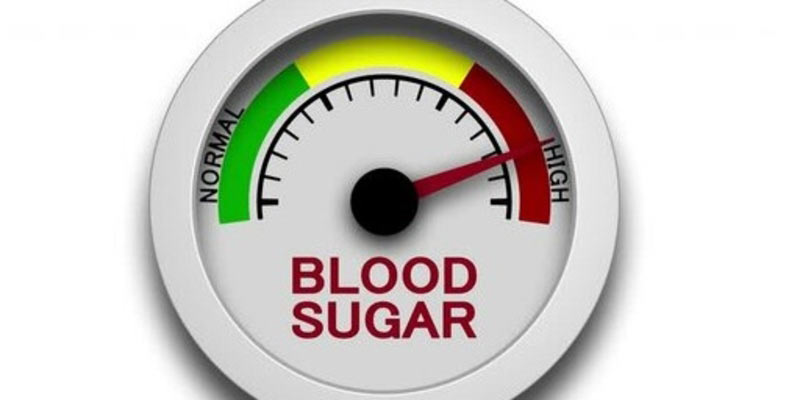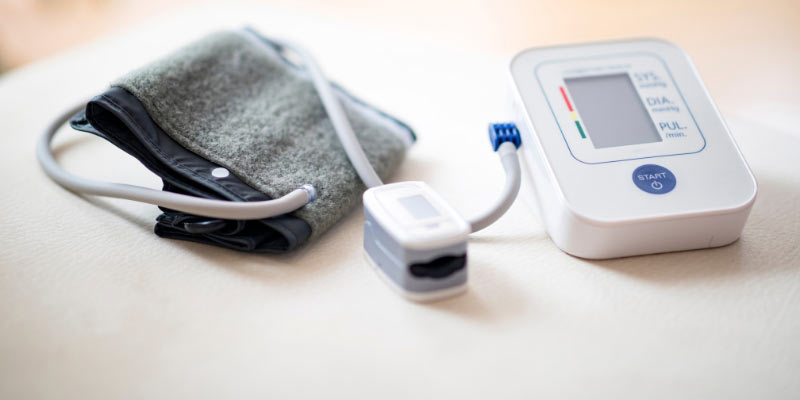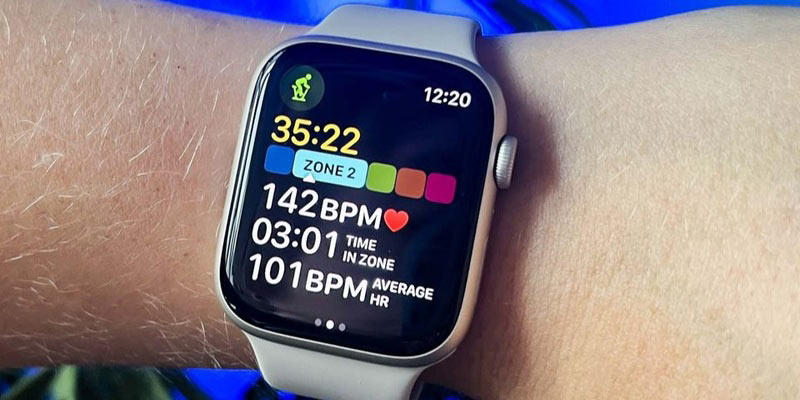It is crucial for one's health to regulate blood sugar levels. It entails maintaining glucose (blood sugar) levels that are neither too high nor too low. For optimal energy and bodily function, this equilibrium is necessary. It is easier to avoid health problems when blood sugar is kept within the usual range. Achieving this equilibrium is fundamental to good health. Optimal levels indicate healthy organ function and a pleasant mood. Therefore, it is crucial to know how to maintain these ideal levels of blood sugar. With this knowledge, we can keep our health in excellent shape and our quality of life high.

Factors Influencing Blood Sugar Levels
Dietary Impacts on Blood Sugar
A person's blood sugar levels are greatly influenced by their diet. Blood sugar levels may rise suddenly after eating foods rich in sugar and carbs. Fruits and vegetables, which are high in fiber, may help keep levels steady. How much, when, and what we consume are other important considerations. Snacking on smaller, more balanced meals spaced out throughout the day may assist in keeping blood sugar levels more stable. For optimal health, it is essential to know which meals affect blood sugar levels and how to maintain a healthy balance.
Role of Physical Activity
In order to keep blood sugar levels stable, exercise is essential. Physical exercise lowers blood sugar levels because it uses sugar for energy. When we exercise regularly, our bodies become more insulin-sensitive, which allows them to better control blood sugar levels. Aerobic and resistance training, among other forms of exercise, may have positive effects. Finding an activity that you can stick to for the long haul is crucial for controlling your blood sugar levels via exercise, so make sure it's something you love doing.
Influence of Stress and Sleep
It might be helpful to find methods to handle stress, including relaxation techniques or counseling. Sleep is equally important. Insufficiency of sleep may disrupt the hormones that control blood sugar levels. Both the amount and quality of sleep are important for optimal health. Establishing a regular sleep schedule and making your bedroom a relaxing place to sleep is crucial for keeping blood sugar levels in check.
Strategies for Maintaining Optimal Blood Sugar Levels
Dietary Guidelines for Blood Sugar Control
Making healthy food choices is the first step in controlling blood sugar. Part of the solution is eating a healthy, well-rounded diet full of whole foods. Fruits, vegetables, whole grains, and legumes are great sources of fiber, so be sure to eat lots of them. In order to lessen the likelihood of dangerous rises in blood sugar, fiber delays the absorption of sugar. Additionally, it is critical to consume lean proteins and good fats. You won't consume as much since you'll have continuous energy and feel full for longer. To keep blood sugar levels steady, stay away from processed meals and sugary beverages. The same holds true for portion control. To keep blood sugar levels steady, eat smaller meals more often. Healthier dietary selections may be guided by keeping an eye on the glycemic index.
Importance of Regular Physical Exercise
Managing blood sugar is made much easier with regular exercise. This aids the body in making better utilization of insulin. Strength training and cardiovascular activities like swimming, cycling, or walking are equally effective. Be consistent; even if you only walk quickly for 10 minutes every day, you will see results. An important part of avoiding or controlling diabetes is maintaining a healthy weight, and exercise may assist with both of those things.
Stress Management Techniques
The levels of sugar in the blood may be significantly impacted by stress. Blood sugar levels might increase as a result of the stress chemicals released by the body, such as adrenaline and cortisol. So, it's critical to have a strategy for managing stress well. Yoga, meditation, and deep breathing are some of the most beneficial practices. Another crucial thing to do is to relax and revitalize yourself by engaging in hobbies or other activities. One aspect of managing stress is making sure you get enough sleep. Make your bedroom a relaxing and restful place to sleep, and stick to a regular sleep schedule. Those suffering from severe or persistent stress may also benefit from seeing a mental health professional or becoming a member of a support group. For healthy blood sugar levels, it's important to find a balance between life's responsibilities and self-care, relaxation, and balance.

Monitoring and Measuring Blood Sugar
Tools for Monitoring Blood Sugar at Home
Glucose meters, CGMs, and fingerstick tests are just a few of the instruments at your disposal for this reason. In contrast to continuous glucose monitors (CGMs), glucose meters provide measurements at regular intervals throughout the day. In order to do a fingerstick test, one must prick their finger and then place a small amount of blood on a test strip. Regular monitoring of blood sugar levels allows users to make educated dietary, pharmaceutical, and lifestyle choices. It is critical to choose the most appropriate monitoring tool according to your individual requirements and preferences.
Understanding Blood Sugar Readings
Effective management relies on accurate interpretation of blood sugar measurements. American blood sugar levels are usually measured in milligrams per deciliter (mg/dL), but international standards use millimoles per liter (mmol/L). Readings taken two hours after a meal should ideally fall below 180 mg/dL (10 mmol/L); however, this is not always the case. Quick consumption of glucose-containing meals or beverages is necessary for the treatment of low blood sugar (hypoglycemia), which might manifest in symptoms such as trembling, perspiring, and disorientation. Hyperglycemia, or high blood sugar, causes symptoms including extreme thirst and frequent urination and may need changes to insulin or medicine. In order to keep blood sugar levels under control and avoid issues, it is vital to check them often and comprehend the statistics. Additional information on goal ranges and personalized management strategies may be obtained by consulting with a healthcare provider.
Medical Approaches to Blood Sugar Regulation
Medication is essential for the regulation of blood sugar levels in some people with diabetes and other disorders involving blood sugar. Oral medicines and injectable insulin are among the many accessible forms of therapy. Methylphenidate and other oral diabetes medicines improve insulin sensitivity and decrease sugar synthesis in the liver, two pathways that contribute to reduced blood sugar levels. When insulin production is short, injectable insulin becomes the go-to treatment. To maintain the best blood sugar management, it is vital to follow your healthcare provider's recommendations about medication type, dose, and time. To determine the efficacy of drugs and make appropriate modifications, regular monitoring is crucial.
Conclusion
Ensuring healthy blood sugar levels is crucial for general health and wellness. Individuals may take charge of their blood sugar levels by learning what variables affect them, eating a balanced diet, exercising regularly, and handling stress well. It is critical to accurately monitor blood sugar levels with the appropriate equipment and to understand the results. It is important to seek the advice of healthcare professionals before using medical methods, including medication when needed. Successful blood sugar management promotes a happier and more satisfying life, which is achieved via regular check-ups and early intervention.






